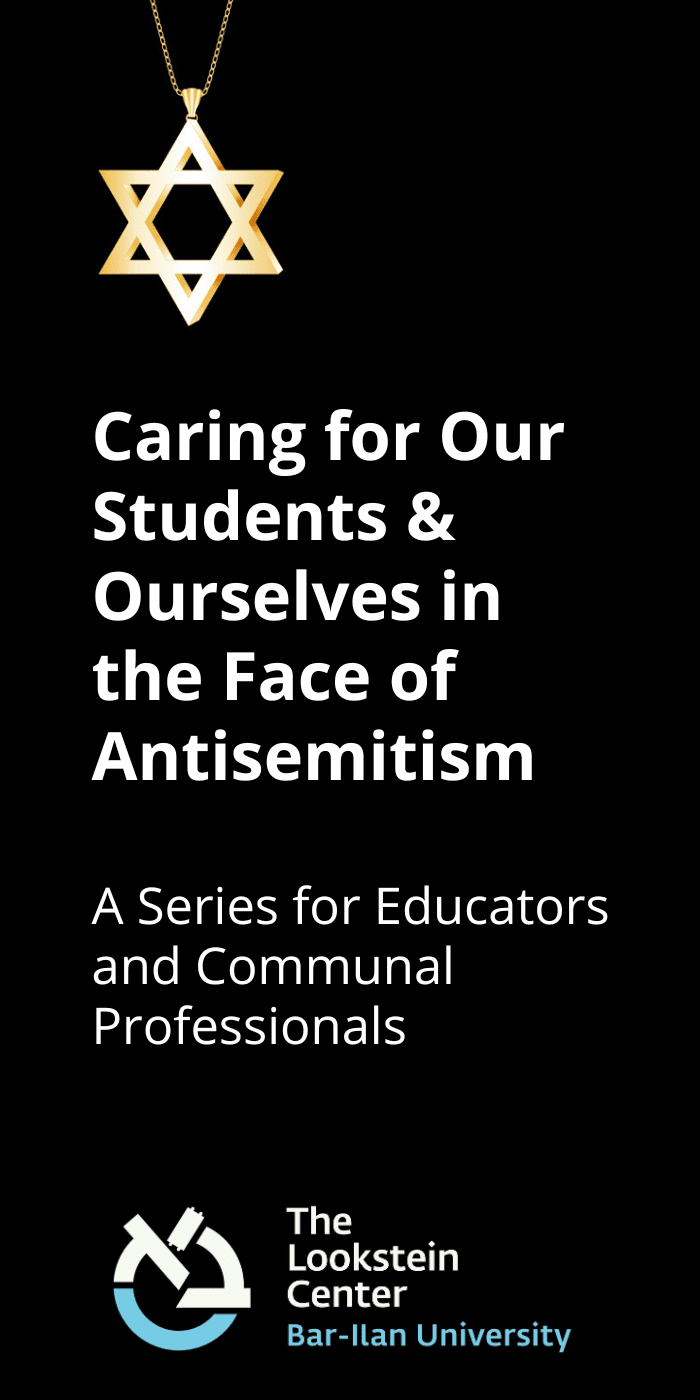I grew up with antisemitism. The ugly kind. There were certain nights during the year that my parents didn’t allow us out of the house because “bad things” tended to happen on those nights. I was attacked on my bicycle while delivering chickens for a local kosher butcher, beaten on the public bus going to school, punched out on the street coming home. We heatedly debated amongst ourselves whether “it” (the Holocaust) could happen in America. Some of the adults told us not to wear a kippah in public. Others encouraged us to be strong and learn to defend ourselves.
People growing up in the same neighborhood ten years later look at me with bemused surprise when I share this, as if I had come from a different part of the planet. Something switched in the 1970s-1980s. Antisemitism seemed to be a thing of the past. For nearly four decades antisemitism—whether the overt kind in the streets or the covert kind of limits on college admissions, exclusions from clubs, professional limitations, and more—seemed to have disappeared into the history books.
Somewhere in the early twenty-first century things began to shift again, subtly at first, and then not so subtly. By 2020 the beast had returned, and this time with a new twist. “Traditional” right-wing antisemitism, resurgent with a wave of school and synagogue shootings, had a new ally on the left. College campuses, bastions of progressive thinking, became hothouses for left-wing antisemitism, and adding fuel to that fire was a growing anti-Israel movement, for much of which the anti-Zionist rhetoric was a thinly veiled form of antisemitism.
That left-driven antisemitism is particularly pernicious as it causes many young Jews not only to be concerned about their physical safety, but to question whether their Jewish identity is something they are proud of or not. For educators, the questions of how and why to understand this resurgence live side-by-side with a myriad of educational challenges. One day-school principal shared with us her distress when a young student commented in a public gathering that if he is attacked for wearing a kippah then he is responsible for bringing it upon himself. Do we encourage our students to hide their identity or to protect themselves? What kind of tools can we give students to deal with trauma after an attack on Jewish institutions, the very places designed to provide a sense of security? How do we teach our children to be proud of their Jewish identities when social media floods them with negative images of Jews and Israel? How do we prepare our students for life outside of the Jewish bubbles in which many of them live?
In this issue we bring a wide-ranging collection of voices. From award-winning author Yossi Klein Halevi to Avi Baran Munro, a day school head in Pittsburgh; from social activist Sara Liss to psychologist Michaela Ambrosius and, of course, educators—veterans and newcomers, formal and informal, and from those dealing with students of all ages. As always, we hope that this journal issue brings not only insights and ideas, but questions with which to grapple and content to process in that grappling. Together, we can help our students grow more resilient, more capable of dealing—as Jews—with the uncertain world in which they live.




Good article If you want another perspective I am writing a book entitled, NYPD JEW being one of the first orthodox cops in NYC and how I was Growing up Scared from pernicious anti-Semitism. I have been lecturing around the country for many years and spoke often at the CAJE Conferences. Currently as well I am pioneering a new/old modality training and teaching Martial Arts Therapeutically for pain management, rehab and trauma recovery. Rabbi Sensei Abbah Gavriael/Gary Moskowitz MS Ed Admin, eligible for the NYS Bar 7th degree Black Belt in Ju-Jitsu and Karate, former NYC police officer and tactical… Read more »